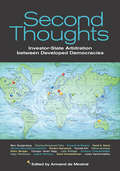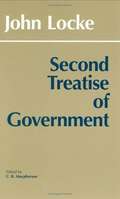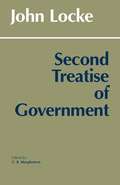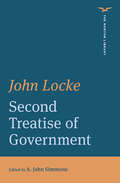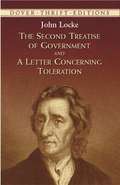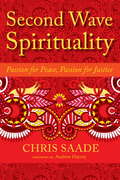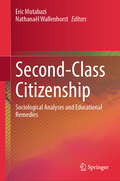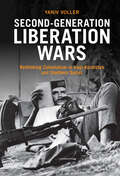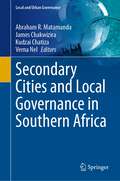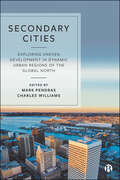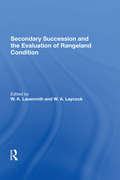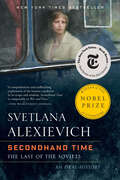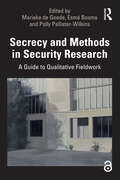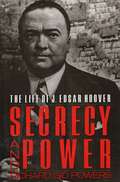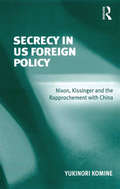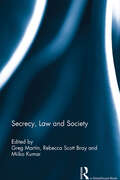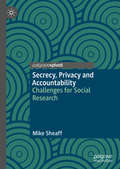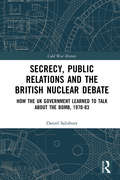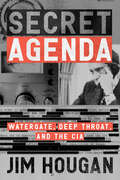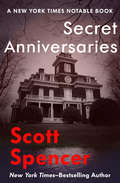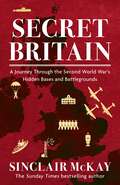- Table View
- List View
Second Thoughts: Investor State Arbitration between Developed Democracies
by Armand De MestralCriticism. Doubts. Second thoughts. Although investor-state arbitration (ISA) has been included in investment agreements between developed and developing countries since the 1960s, and provided foreign investors with a kind of private justice against developing world host states, it became increasingly controversial in developed countries when it was included in NAFTA in 1993, creating the possibility of ISA claims between and against two developed countries (the United States or Canada), as well as claims against and by a developing state (Mexico). A few years later, the OECD’s attempt to finalize the Multilateral Agreement on Investment was stymied by concerted civil society protest and opposition to ISA, and in recent years each new proposed agreement has sparked fresh rounds of protest. What engenders the controversy about ISA? While ISA’s advantage is that it prevents escalation of international conflict by relieving states from feeling obliged to espouse claims of injured investors against foreign governments, it is criticized for creating regulatory chill whereby states are reluctant to make necessary public policy reforms for fear that changes to the investment environment will lead to expensive investor claims. Are fears of litigation and expensive payouts well founded? Can key modifications to the ISA system, such as those added to the Comprehensive Economic and Trade Agreement satisfy critics and redeem this system of private justice? Is ISA really necessary between developed democracies where an independent and professional judiciary can generally be trusted to decide without fear or favour? In Second Thoughts: Investor-State Arbitration between Developed Democracies, 16 international investment legal experts have undertaken in-depth analyses of ISA’s economic, political, and social impacts when included in agreements between developed democracies. This timely volume appears at a critical moment, seeking answers to the crucial questions that will determine the next generation of international investment agreements.
Second Treatise of Government
by John Locke C. B. MacphersonThe central principles of what today is broadly known as political liberalism were made current in large part by Locke's "Second Treatise of Government" (1690). The principles of individual liberty, the rule of law, government by consent of the people, and the right to private property are taken for granted as fundamental to the human condition now. Most liberal theorists writing today look back to Locke as the source of their ideas. Some maintain that religious fundamentalism, "post-modernism," and socialism are today the only remaining ideological threats to liberalism. To the extent that this is true, these ideologies are ultimately attacks on the ideas that Locke, arguably more than any other, helped to make the universal vocabulary of political discourse.
Second Treatise of Government
by John Locke C. B. MacphersonThe Second Treatise is one of the most important political treatises ever written and one of the most far-reaching in its influence.In his provocative 15-page introduction to this edition, the late eminent political theorist C. B. Macpherson examines Locke's arguments for limited, conditional government, private property, and right of revolution and suggests reasons for the appeal of these arguments in Locke's time and since.
Second Treatise of Government (The Norton Library #0)
by John LockeAbout Second Treatise of Government Edited by A. John Simmons, “one of our most distinguished theorists of political obligation” (Jeremy Waldron), the Norton Library edition of Locke’s Second Treatise of Government features the complete text of the sixth (1764) edition, which incorporated all of Locke’s corrections to previous editions. Punctuation has been altered and spelling modernized wherever necessary to eliminate ambiguity and make the text more readable. Extensive endnotes explain obscure terms and references and clarify Locke’s arguments. A thorough introduction situates the work in historical and intellectual context and, most importantly, traces its major themes and arguments to help readers approach “the greatest English philosopher[‘s]” (Antony Flew) most influential work with confidence and understanding.
Second Treatise of Government and a Letter Concerning Toleration
by John Locke J. W. GoughLocke's main argument for toleration is a corollary of his theory of the nature of civil society. This book rests on basic principles of this theory merging civil liberties with political order.
Second Wave Spirituality
by Andrew Harvey Chris SaadeIn his work as a spiritual teacher interacting with seekers and activists from around the world, Chris Saade has witnessed a remarkable recent phenomenon: a new wave of spirituality that is socially and globally engaged in the pursuit of justice, earth care, and solidarity. Saade calls this movement "second wave spirituality," and in this book he maps out the cutting-edge ideas that are fueling this new wave of engaged spirituality. He challenges us to rise to our spiritual task and join the millions of all faiths who are awakening to the suffering and social struggles of all living beings. According to Saade, new wave spirituality holds a vision of the intrinsic values of love: justice, global peace, solidarity, inclusion, democratic freedom, compassion, and reconciliation. Saade explores current trends of thought that are shaking the foundations of our belief systems and propelling us toward an evolutionary leap. We are in the midst of a spiritual renaissance, Saade asserts, a universal reawakening that will steer us away from the abysmal global dangers we are facing.The book also includes a collection of quotations as a resource for those working for peace, justice, and inclusion. By dividing the selections into theme-specific chapters, Saade helps us easily access the wisdom and companionship of other souls committed to our diversity, our oneness, and our pursuit of justice.ContentsForeword by Andrew HarveyIntroduction1. The Emergence of Second Wave Spirituality2. A Brief Historical Overview of "First Wave" Spirituality3. Crossing the Threshold4. The Flowering of the Feminine in Theological and Spiritual Thinking5. The Great Convergence of Spiritual Development and Action for Peace and Justice6. The Six Crucial Ideas that Converged and Generated the Global Awakening of Second Wave Spirituality7. Fourteen Additional Characteristics Essential to Second Wave Spirituality8. A Response to the Escalating Global Crisis: Love in Action9. Implications of Second Wave Spirituality for the Individual10. Practical Suggestions for Spiritual Activism11. Summary and A Blessing for the Reader12. Engaged Spirituality and Sacred Activism: Writings and Quotes
Second-Class Citizenship: Sociological Analyses and Educational Remedies
by Nathanaël Wallenhorst Eric MutabaziA number of features of the contemporary period are preventing people from exercising their citizenship: the acceleration and permanent change in the conditions shaping habitability of planet Earth, the digital and techno-scientific revolution, the rise of religious and political radicalisation, the explosion of social inequalities, the hegemony of the economic drive to maximise individual interests, etc. For many individuals, citizenship appears to be prevented at the first hurdle. What is more, though officially or legally, it is not possible to speak of second-class citizenship-- so what can be done when the actors themselves use such terminology? There is something essential here which must be taken into account as a basis for thinking about the social, its inequalities and its injustices. The authors of this book propose the notion of 'second-class citizenship' as a way of thinking about the scale of contemporary social and political inequalities. In view of this observation, the contributors outline a movement based on the conviction that education is the repository of the power to prepare for the future. How can we learn to build a shared world together and overcome the obstacles that prevent us from doing so? How can we learn new habits of relationships marked by responsibility and hospitality? The collective reflection in this book lends credence to the way in which players talk about their experience, even experiencing differences in their ability to participate in the mechanisms of power. This book presents empirical studies and conceptual tools for thinking about the impact of economic factors on the ways in which citizens participate in the decisions of power. This book is particularly suited for educators as well as policy-makers and researchers.
Second-Generation Liberation Wars: Rethinking Colonialism in Iraqi Kurdistan and Southern Sudan (Intelligence and National Security in Africa and the Middle East)
by Yaniv VollerThe formation of post-colonial states in Africa, and the Middle East gave birth to prolonged separatist wars. Exploring the evolution of these separatist wars, Yaniv Voller examines the strategies that both governments and insurgents employed, how these strategies were shaped by the previous struggle against European colonialism and the practices and roles that emerged in the subsequent period, which moulded the identities, aims and strategies of post-colonial governments and separatist rebels. Based on a wealth of primary sources, Voller focuses on two post-colonial separatist wars; In Iraqi Kurdistan, between Kurdish separatists and the government in Baghdad, and Southern Sudan, between black African insurgents and the government in Khartoum. By providing an account of both conflicts, he offers a new understanding of colonialism, decolonisation and the international politics of the post-colonial world.
Second-Order Preservation: Social Justice and Climate Action through Heritage Policy
by Erica AvramiAn urgent appeal to rethink the heritage enterprise A critical reassessment of historic preservation policies in the United States, Second-Order Preservation brings needed attention to the hierarchical underpinnings and effects of established preservation frameworks. Questioning the criteria by which value is ascribed to historic buildings and neighborhoods, Erica Avrami works to elucidate and transform how—and which—claims to place become codified in and reinforced through public policy. As she eschews dominant case-study approaches that center the individual object of preservation, such as a discrete building or site, Avrami develops the concept of second-order preservation as a means of integrating broader considerations around social justice, equitable land-use planning, and environmental sustainability. Ranging from municipal to state to national and international levels of governance, her critique of the origins and evolution of heritage policy reveals how this conventional emphasis on the object has contributed to policy tensions and systemic exclusion. Stressing the need to reform current preservation practices to serve more diverse publics, Avrami encourages a turn to an approach that substantively considers contexts and implications of preservation in the scheme of climate and justice. Second-Order Preservation maintains the interrelation between theory and practice, serving as both a critical reflection and a provocation aimed at advancing a more just set of urban policy agendas.
Secondary Cities and Local Governance in Southern Africa (Local and Urban Governance)
by Abraham R. Matamanda Verna Nel James Chakwizira Kudzai ChatizaThis book is the first to consider the roles, challenges and governance responses of secondary cities in southern Africa to changing circumstances. Among the challenges are governance under conditions of resource scarcity, managing informality, the effects and responses to climate change and the changing roles of the cities within the national space economy. It fills the gap in the literature on secondary cities with original case studies drawn from South Africa, Zimbabwe and Mozambique. The authors are all African scholars, working and living in the region with intimate knowledge of the settings they describe. The book is critical as it includes such regional case studies of different secondary cities in Southern Africa but also because of it’s multidisciplinarity: it contains substantive and pertinent issues such as climate change, disaster management, local economic development, and basic services delivery. It considers diverse environments, yet with similar challenges that could provide useful policy and governance proposals for other cities.
Secondary Cities: Exploring Uneven Development in Dynamic Urban Regions of the Global North
by Mark Pendras and Charles WilliamsThis book explores cities and the intra-regional relational dynamics often overlooked by urban scholars, and it challenges common representations of urban development successes and failures. Gathering leading international scholars from Europe, Australia and North America, it explores the secondary city concept in urban development theory and practice and advances a research agenda that highlights uneven development concerns. By emphasising the subordinate status of secondary cities relative to their dominant neighbours the book raises new questions about regional development in the Global North. It considers alternative relations and development strategies that innovatively reimagine the subordinate status of secondary cities and showcase their full potential.
Secondary Stem Educational Reform
by Carla C. JohnsonFederal and state funding agencies have invested billions of dollars into secondary STEM (Science, Technology, Education, Mathematics) educational reform over the past decade. This volume addresses the interplay of external and internal variables associated with school reform and how this dynamic has impacted many efforts.
Secondary Succession And The Evaluation Of Rangeland Condition
by W. K. Lauenroth W. A. Laycock William Laycock W K LauenrothThis book juxtaposes traditional and currently applied concepts of rangeland condition with new concepts. It presents a dialogue between traditionalists and their critics. The book outlines the effects of various activities by humans that eventually lead toward multiple climaxes.
Secondhand Time: The Last of the Soviets
by Svetlana AlexievichNEW YORK TIMES BESTSELLER • A symphonic oral history about the disintegration of the Soviet Union and the emergence of a new Russia, from Svetlana Alexievich, winner of the Nobel Prize in LiteratureNAMED ONE OF THE TEN BEST BOOKS OF THE YEAR BY THE WASHINGTON POST AND PUBLISHERS WEEKLY • LOS ANGELES TIMES BOOK PRIZE WINNEROne of the New York Times&’s 100 Best Books of the 21st Century When the Swedish Academy awarded Svetlana Alexievich the Nobel Prize, it cited her for inventing &“a new kind of literary genre,&” describing her work as &“a history of emotions—a history of the soul.&” Alexievich&’s distinctive documentary style, combining extended individual monologues with a collage of voices, records the stories of ordinary women and men who are rarely given the opportunity to speak, whose experiences are often lost in the official histories of the nation. In Secondhand Time, Alexievich chronicles the demise of communism. Everyday Russian citizens recount the past thirty years, showing us what life was like during the fall of the Soviet Union and what it&’s like to live in the new Russia left in its wake. Through interviews spanning 1991 to 2012, Alexievich takes us behind the propaganda and contrived media accounts, giving us a panoramic portrait of contemporary Russia and Russians who still carry memories of oppression, terror, famine, massacres—but also of pride in their country, hope for the future, and a belief that everyone was working and fighting together to bring about a utopia. Here is an account of life in the aftermath of an idea so powerful it once dominated a third of the world. A magnificent tapestry of the sorrows and triumphs of the human spirit woven by a master, Secondhand Time tells the stories that together make up the true history of a nation. &“Through the voices of those who confided in her,&” The Nation writes, &“Alexievich tells us about human nature, about our dreams, our choices, about good and evil—in a word, about ourselves.&”A BEST BOOK OF THE YEAR: The New York Times, The Boston Globe, The Wall Street Journal, NPR, Financial Times, Kirkus Reviews
Secrecy and Methods in Security Research: A Guide to Qualitative Fieldwork
by Marieke De Goede Esmé Bosma Polly Pallister-WilkinsThis book analyses the challenges of secrecy in security research, and develops a set of methods to navigate, encircle and work with secrecy. How can researchers navigate secrecy in their fieldwork, when they encounter confidential material, closed-off quarters or bureaucratic rebuffs? This is a particular challenge for researchers in the security field, which is by nature secretive and difficult to access. This book creatively assesses and analyses the ways in which secrecies operate in security research. The collection sets out new understandings of secrecy, and shows how secrecy itself can be made productive to research analysis. It offers students, PhD researchers and senior scholars a rich toolkit of methods and best-practice examples for ethically appropriate ways of navigating secrecy. It pays attention to the balance between confidentiality, and academic freedom and integrity. The chapters draw on the rich qualitative fieldwork experiences of the contributors, who did research at a diversity of sites, for example at a former atomic weapons research facility, inside deportation units, in conflict zones, in everyday security landscapes, in virtual spaces and at borders, bureaucracies and banks. The book will be of interest to students of research methods, critical security studies and International Relations in general.
Secrecy and Power: Life Of J. Edgar Hoover
by Richard Gid PowersA well-researched biography about the public and private life of J. Edgar Hoover—former FBI director and America&’s most controversial law enforcer—that draws on previously unknown personal documents, a study of FBI files, and the presidential papers of nine administrations.Secrecy and Power is a full biography of former FBI director, covering all aspects of Hoover&’s controversial career from the Red Scare following World War I to the 1960s and his personal vendettas against Martin Luther King and the civil rights and antiwar movements.
Secrecy and Publicity in Votes and Debates
by Jon ElsterIn the spirit of Jeremy Bentham's Political Tactics, this volume offers the first comprehensive discussion of the effects of secrecy and publicity on debates and votes in committees and assemblies. The contributors - sociologists, political scientists, historians, legal scholars - consider the micro-technology of voting (the devil is in the detail), the historical relations between the secret ballot and universal suffrage, the use and abolition of secret voting in parliamentary decisions, and the sometimes perverse effects of the drive for greater openness and transparency in public affairs. The authors also discuss the normative questions of secret versus public voting in national elections and of optimal mixes of secrecy and publicity, as well as the opportunities for strategic behavior created by different voting systems. Together with two previous volumes on Collective Wisdom (Cambridge University Press, 2012) and Majority Decisions (Cambridge University Press, 2014), the book sets a new standard for interdisciplinary work on collective decision-making.
Secrecy in US Foreign Policy: Nixon, Kissinger and the Rapprochement with China
by Yukinori KomineSecrecy in US Foreign Policy examines the pursuit of strict secrecy by President Nixon and his National Security Advisor Kissinger in foreign policy decision making in relation to the US rapprochement with China. Moreover it sheds new light on the complexity and dynamism of the evolution of China initiatives and demonstrates the many policy options and perspectives among US officials. Dr Komine focuses on three major elements of the rapprochement: "
Secrecy, Law and Society
by Greg Martin Rebecca Scott Bray Miiko KumarCommentators have shown how a ‘culture of security’ ushered in after the terrorist attacks of 11 September 2001 has involved exceptional legal measures and increased recourse to secrecy on the basis of protecting public safety and safeguarding national security. In this context, scholars have largely been preoccupied with the ways that increased security impinges upon civil liberties. While secrecy is justified on public interest grounds, there remains a tension between the need for secrecy and calls for openness, transparency and disclosure. In law, secrecy has implications for the separation of powers, due process, and the rule of law, raising fundamental concerns about open justice, procedural fairness and human rights. Beyond the counterterrorism and legal context, scholarly interest in secrecy has been concerned with the credibility of public and private institutions, as well as the legacies of secrecy across a range of institutional and cultural settings. By exploring the intersections between secrecy, law and society, this volume is a timely and critical intervention in secrecy debates traversing various fields of legal and social inquiry. It will be a useful resource for academic researchers, university teachers and students, as well as law practitioners and policymakers interested in the legal and socio-legal dimensions of secrecy.
Secrecy, Privacy and Accountability: Challenges for Social Research
by Mike SheaffPublic mistrust of those in authority and failings of public organisations frame disputes over attribution of responsibility between individuals and systems. Exemplified with examples, including the Aberfan disaster, the death of Baby P, and Mid Staffs Hospital, this book explores parallel conflicts over access to information and privacy.The Freedom of Information Act (FOIA) allows access to information about public organisations but can be in conflict with the Data Protection Act, protecting personal information. Exploring the use of the FOIA as a research tool, Sheaff offers a unique contribution to the development of sociological research methods, and debates connected to privacy and secrecy in the information age. This book will provide sociologists and social scientists with a fresh perspective on contemporary issues of power and control.
Secrecy, Public Relations and the British Nuclear Debate: How the UK Government Learned to Talk about the Bomb, 1970-83 (Cold War History)
by Daniel SalisburyThis book constitutes an original archival history of government secrecy, public relations and the debate surrounding nuclear weapons in Britain from 1970 to 1983. The book contrasts the secrecy and near-silence of the Heath, Wilson and Callaghan governments on nuclear issues in the 1970s with the increasingly vocal case made for the possession of nuclear weapons by the first Thatcher government following a shift in approach in 1980. This shift occurred against a background of rising Cold War tensions and a growing public nuclear debate in the UK. The book seeks to contextualise and explain this transformation, considering the role of party politics, structures and personalities inside the government, and external influences: notably the role of investigative journalists and think tanks in cracking open official secrecy and demanding justification for Britain’s possession of nuclear weapons, and the peace movement in driving increasingly assertive public relations from 1980. The book draws on material from archives and interviews with key figures involved to provide an original and engaging account. It argues that this process of opening up saw significant disclosure of nuclear policy for the first time, and the most extensive public justification of the British nuclear capability to date, which has shaped public understanding of British nuclear weapons into the twenty-first century. This book will be of much interest to students of British politics, Cold War studies, nuclear politics and security studies.
Secret Agenda: Watergate, Deep Throat, and the CIA
by Jim HouganThe exposé that reveals &“a prostitution ring, heavy CIA involvement, spying on the White House as well as on the Democrats, and plots within plots&” (The Washington Post) Ten years after the infamous Watergate scandal that brought down the Nixon presidency, Jim Hougan—then the Washington editor of Harper&’s Magazine—set out to write a profile of Lou Russell, a boozy private-eye who plied his trade in the vice-driven underbelly of the nation&’s capital. Hougan soon discovered that Russell was &“the sixth man, the one who got away&” when his boss, veteran CIA officer Jim McCord, led a break-in team into a trap at the Watergate. Using the Freedom of Information Act to win the release of the FBI&’s Watergate investigation—some thirty-thousand pages of documents that neither the Washington Post nor the Senate had seen—Hougan refuted the orthodox narrative of the affair. Armed with evidence hidden from the public for more than a decade, Hougan proves that McCord deliberately sabotaged the June 17, 1972, burglary. None of the Democrats&’ phones had been bugged, and the spy-team&’s ostensible leader, Gordon Liddy, was himself a pawn—at once, guilty and oblivious. The power struggle that unfolded saw E. Howard Hunt and Jim McCord using the White House as a cover for an illicit domestic intelligence operation involving call-girls at the nearby Columbia Plaza Apartments. A New York Times Notable Book, Secret Agenda &“present[s] some valuable new evidence and explored many murky corners of our recent past . . . The questions [Hougan] has posed here—and some he hasn&’t—certainly deserve an answer&” (The New York Times Book Review). Kirkus Reviews declared the book &“a fascinating series of puzzles—with all the detective work laid out.&”
Secret Agent Jack Stalwart: Egypt (The Secret Agent Jack Stalwart Series #14)
by Elizabeth Singer HuntIn this thrilling and educational adventure series, nine-year-old secret agent Jack Stalwart travels to the farthest ends of the earth to solve international crimes and bring home his long-lost brother, Max.
Secret Anniversaries
by Scott SpencerDuring WWII, a naive young woman is hired by a Nazi-sympathizing congressman, in this novel by the New York Times–bestselling author of A Ship Made of Paper. As the Second World War heats up, Caitlin Van Fleet moves to Washington, DC, to become a &“government girl&” in the office of Congressman Stowe, who has connections to such controversial figures as the fiery radio commentator Father Coughlin and the German-American Bund. Young and impressionable, Caitlin enters into a passionate love affair with the congressman&’s aide, Betty Sinclair. But their relationship, while intense, is short-lived. When Caitlin befriends Joe Rose, an undercover reporter working to expose Stowe as a Nazi collaborator, she must decide once and for all what she truly stands for. From a two-time National Book Award finalist known for such novels as Endless Love, The Rich Man&’s Table, and An Ocean Without a Shore, New York Times Notable Book Secret Anniversaries brings to life the political controversies surrounding World War II, and delves into one woman&’s decades-long journey as she wrestles with questions of passion and principle. &“Spencer is one of my very favorite writers.&” —Emma Cline, New York Times–bestselling author of The Girls &“A gifted storyteller.&” —Newsday &“A magnificent writer.&” —Anne Tyler, Pulitzer Prize–winning author of Redhead by the Side of the Road
Secret Britain: A journey through the Second World War's hidden bases and battlegrounds
by Sinclair McKayDiscover the stories of the brave men and women who worked, trained and fought across the UK, from Bletchley Park in southern England all the way to Arisaig in northern Scotland, in an unbelievable effort to defeat the Nazis and win the Second World War .From the outset of the war, most of Britain felt like a mystery even to those who lived there. All road and railway signs were removed up and down the country to thwart potential enemy spies. An invisible web of cunning spread across the United Kingdom; secret laboratories were hidden in marshes, underground bases were built to conceal key strategic plans and grand country houses became secret and silent locations for eccentric boffins to do their confidential cryptography work.In Secret Britain, Sinclair McKay maps out the UK through the hidden bases and battlegrounds of WWII. These locations are full of history and intrigue, but if you don't know where to look, you might just miss them. Journeying through secret wildernesses, suburbs, underground tunnels and manor houses, Sinclair gives a glimpse into the stories of the incredible people behind the war effort, and shows how you might be able to visit these mysterious and evocative locations yourself.With his trademark warmth and compassion, Sinclair unearths the truths of the war that have remained under layers of secrecy since the war was won in 1945.
